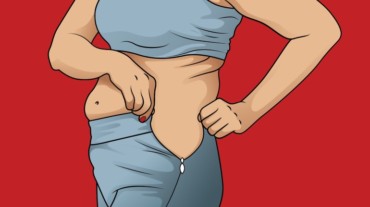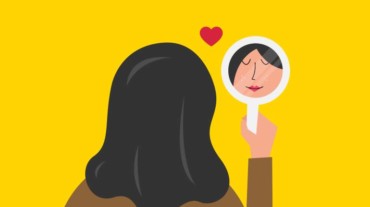“Pregnant women, like you, need to take care of your diet and lifestyle,” a popular 1990’s actress told an audience member at the launch of a pregnancy-related book almost a decade ago. The lady replied, “Ma’am, but I am not pregnant… I am just a little fat!” Sure enough, it was a foot-in-mouth moment – qualifying as body shaming – for the actress, who apologized immediately after.
In another instance, a critically acclaimed actor once congratulated me: “Oh my God, you’re expecting!” He gave me a hug even before I could say, “No, I am not! I am just wearing an umbrella-style kurta which may be fit for maternity wear, but I like it anyway!”
The idea behind sharing these “oops” moments is to underline the nonchalance with which people play the ‘she’s pregnant-she’s not’ guessing game just on the basis of how one looks.
As someone on the heavier side of the weighing scale and wider side of the inch tape, I take offence. As someone keeping a tab on Bollywood paparazzi culture and the seamless speculations of where the stork is visiting, I take offence.

Bollywood actresses under media’s pregnancy scanner
Kareena Kapoor Khan, Katrina Kaif, Kajol, Aishwarya Rai Bachchan, Bipasha Basu – the list of celebrities who have been under the media’s ‘pregnancy scanner’ just recently keeps growing.
Mommy to two sons, Kareena shot down the buzz around her third pregnancy in her own inimitable way. “It’s the pasta and wine guys… calm down… I am not pregnant… Saif says he has already contributed way too much to the population of our country,” she quipped.
Nevertheless, it doesn’t take away from the fact that people are quick to assume a little tummy for a baby bump!
Actress Divyanka Tripathi Dahiya also took to her Instagram page, and wrote, “I don’t have a flat stomach like (an) ideal woman’s image portrayed. Deal with it! Don’t ask me again if I’m pregnant or fat!”
Check out her post here!
At a time when body shaming is slowly but steadily being shamed as it deserves to be, this needs to be called out louder. Just because a woman wears a loose co-ord set, dark and airy clothes or a balloon dress, it doesn’t mean she’s pregnant!
Besides, fat-shaming is not the only form of body shaming. Celebs such as Kriti Sanon and Disha Patani have been ‘fit-shamed’ and trolled heavily for their “flat”, “hanger” and “haddi” figures.
As someone who speaks up against the body shaming culture often, inspirational speaker and “Too Fat, Too Loud, Too Ambitious” author Devina Kaur, tells Health Shots, “The commercialization of the human body has made us obsess over the ‘ideal’ body type that social media excessively markets. But it can only bring negative criticism and self-doubt in us.”
“All of our bodies are different. Much is to do with our varied eating habits, type of exercises we opt for and genetics we inherit from our parents,” she asserts.
But the mindset around women’s body type stems from societal conditioning. What people, however, don’t realize is how much the mental damage that speculations can cause.
“We have learned that a woman can only gain weight if she’s expecting a child; otherwise, she’s subjected to public humiliation and criticism. As a woman who overcame food addiction because of the size of my body, I can say that negative comments can leave a long-lasting impression and leave mental health scars in its wake,” Kaur adds.
The role of social media in pushing a culture of body shaming
According to life coach Sheetal Shaparia, the overdrive of social media content about the desired body shape and how to attain it, has widened the road to body shaming.
“You see people getting slammed for their body shape every day. People may have read or heard comments like, ‘You are tall for a girl’, ‘Don’t take the second helping, you are gaining too much weight’, ‘Certain colours don’t suit you because of your dark complexion’, ‘Are you planning to start exercising because you’ve been gaining weight?’ Body shaming is everywhere, and social media has made lions of trolls who enjoy bringing other people down,” she said.
It is such comments, even though casually spoken, that change our perception of our body. They become deeply ingrained.
Body shaming, Shaparia says, manifests in surprising ways – when you criticise your own appearance, when others body-shame you to your face or when others body-shame you when you are not around.
The first step, she suggests, is to check if you unconsciously do that to others around you.

How to deal with body shaming?
It may be easier said than done, ladies, but we’ve got to first learn to accept and love our bodies just the way we are.
“Exercising or starving ourselves can lead to psychological damage and become challenging to overcome in the future. We have to make attempts to unlearn the socially accepted body image and release the negativity that we carry. There’s no perfect body type, after all,” says Kaur.
Sheetal Shaparia suggests a few basic steps you can follow to overcome body shaming
1. Other’s comments do not define you:
“People will have a comment or problem with what you say or do. This doesn’t mean they’re right,” explains Shaparia, urging you to listen from one ear and let it go from another.
2. Your body shape isn’t what you are:
“Beyond your body shape is a gem. Create your reality.” The expert says people need to focus on the person they are and the work they do rather than dwelling on the way they look. The insecurity around one’s body shouldn’t shape you or your mind. Learn how to be body confident!

3. Surround yourself with positivity and kindness:
We all have that one relative or friend who thinks they are doing us great justice by pointing out their perception of our flaws. “It is better to draw boundaries than to keep hearing negative comments,” Shaparia notes.
4. Be mindful of social media:
Social media can be your best friend and worst enemy depending on your circle. Follow people who inspire you or make you feel good about yourself and the world in general. And say “nay” to those who are constantly negative in their outlook. Do it if you have to unfollow or block people who constantly pull you down. You can also report if you see someone body shaming you or another person.
